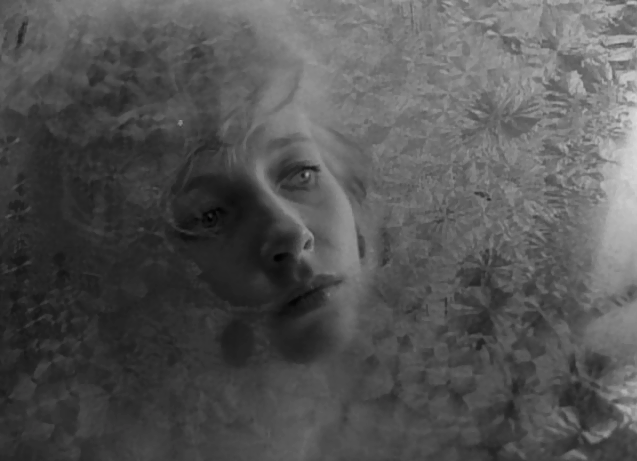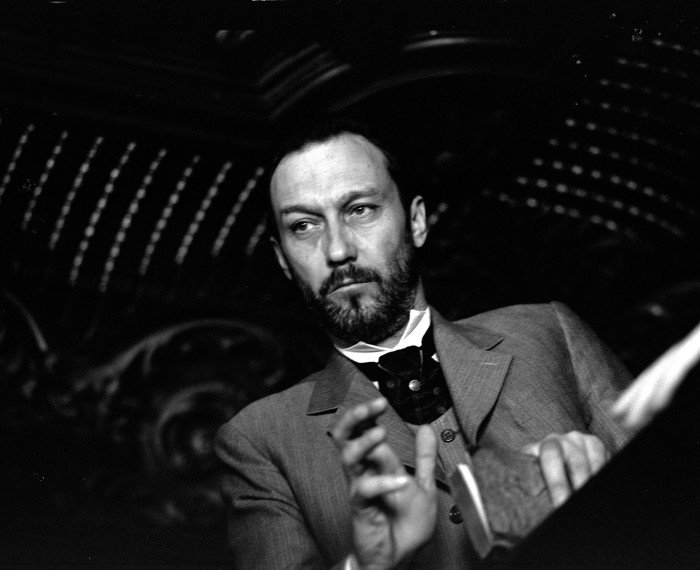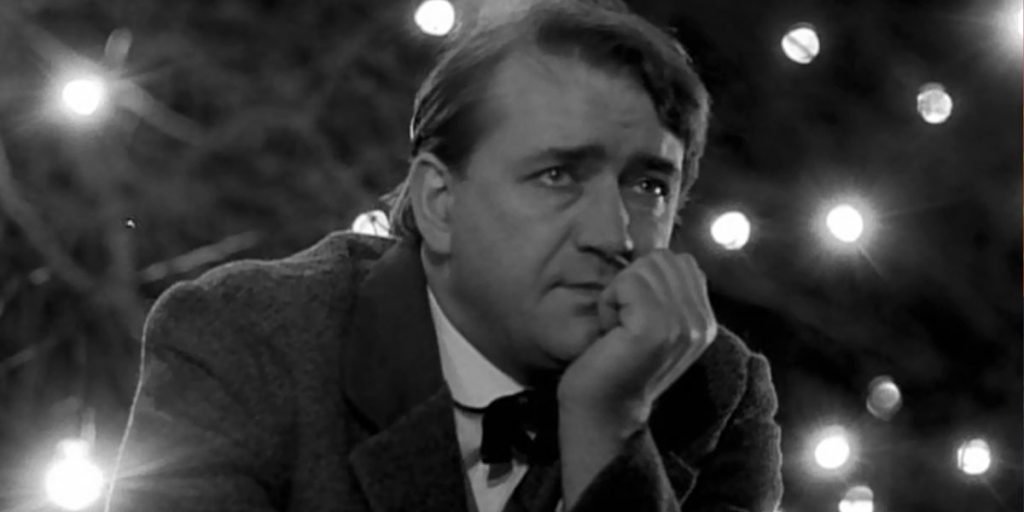My Twentieth Century is a story about two sisters, a man, and an inventor, narrated by a pair of easily-distracted stars.
I recently re-watched Ildikó Enyedi’s My Twentieth Century, and as ever, it was a wonderfully confusing experience. This time around, I thought I might try to channel some of my thoughts on the movie to my fingers, in the hopes that they’ll do a job of typing them out via the keys in front of me. I’d like to tell you I’m doing this for sophisticated reasons, like: “I find that typing helps me order my thoughts”, or “I don’t fully understand a movie until I’ve written a couple hundred words on its phenomenological impact”, but really I’m writing this more as Commissioner Gordon would turn on the bat signal. The poor commissioner’s just come across a crime scene he can’t quite wrap his head around and he’s hoping Batman has either recently interrogated a bad guy with some coincidentally handy info, or has a new gizmo machine that’s going to rapidly solve the case. Now, I don’t want to brag, but I’m the commissioner of Gotham in this situation, and it would be just swell if the Bat could swing by for a little chat on the brilliance of Enyedi’s filmography, maybe over a tea and some digestives.
If you’re reading this and you haven’t seen My Twentieth Century, I really think you ought to go watch it as soon as you can. I assure you I’m not being paid to say this, but subscribers to the BFI Player are currently able to watch it over there at their own leisure. People-from-BFI, if you’re reading this and I’ve just made you some big streaming bucks, you’re more than welcome to throw me a month or two for free, I wouldn’t turn down that sort of offer.
The last time I watched My Twentieth Century, I sat through the credits quite certain I had a new favourite, but how it had snuck onto that list – I really didn’t know. Was it the captivating lead performance? Was it the beautiful black-and-white composition? Or was I just a sucker for Hungarian movies from the late ‘80s?
I still don’t quite have an answer to any of these questions, but, on the most recent watch, my brain was flooded with a number of rather smart ideas about the picture that my opening Batman analogy doesn’t even touch on the potentially-pretentious scale.

My Twentieth Century opens with the camera, and by extension us, joining a crowd of people, gathered to witness and celebrate Edison’s invention of the electric light. This is already pretty exciting stuff, but guess what? The man himself is there in attendance (played by Péter Andorai), and, as he appears above the audience, a pair of talking stars ask him to avert his gaze from America, and take a peek at a place in Budapest, where at that moment a pair of twins are being born. Now, from what I gather, in wanting to show Edison this moment, the stars either intentionally (or unintentionally) also bring us along. We then spend the next 100 or so minutes as spectators to moments in these two ladies’ lives (named Lili and Dóra, both performed by Dorota Segda), as well as taking a few tangential detours, thanks to our sky-bound hosts. We first watch the protagonists get separated as children, and then we jump ahead to New Years Eve, 1899, from where the narrative truly begins.
As I’ve just mentioned, the thing about these two stars is that, at some points in the movie, they seem to get a little disinterested in Lili and Dóra, and instead show us something more… abnormal. There’s a moment where our hosts show footage of a group of cats to an unsuspecting dog, which consequently gives them the energy to break free from a laboratory in which they had seemed to be held captive. There’s another scene where, during a visit to the zoo, we’re gifted the story of a gorilla, who warns us against the dangers of curiosity – a tale in which a most strangely-behaving hunter lures the gorilla into a trap. And, at one low point in Lili’s story, the stars sing comfort to her from on-high.
When we see him, Edison also looks rather disinterested in what the stars are showing him, and really, why should he be otherwise? He’s arguably the world’s greatest inventor, casting the globe into the twentieth century; birthing the moving picture, developing worldwide communications, and of course – creating the electric light.
So, if the stars are showing Edison the stories of these twins, and both him and our floating friends seem at moments to be bored, then should we also tire of these two ladies? Surely the star’s tangential demonstrations and Edison’s genius are far more interesting to us than the simple lives of two ladies. This is where a conundrum begins to form within My Twentieth Century, for the lives of Lili and Dóra are far from tame. In fact, they’re fascinating. They may not be quite as incredible as other protagonists from the era. Over in America by the late ‘80s a kid has befriended an alien from space, and a couple have defended the country against a metal dude from the future. There are certainly more traditionally “engaging” movies out there. But compared to my life – going to university and watching movies – Lili’s plot to assassinate a minister via bomb and Dóra’s bizarre thieving streak are an awful lot more intriguing.

In this situation, I think we have more in common with the stars, watching this tale from an aerial perspective, than we do with Edison. For, although there are moments of apparent disinterest, the stars show their engagement during a climatic moment in which they argue if a character named Z loves either Lili, or Dóra. Like the stars, we also have more potentially interesting things to do than watch this movie – we could go write a book, or go to the beach, or something like that. Why do we continue watching? What is it about this narrative that intrigues us? Edison, on the other hand, never looks like he cares a single iota what these people on the other side of the world are up to.
However, he doesn’t have the perspective we do. He can’t see himself being shown the power of his own creations and the effect they have on others. We can. The stars are providing us a look of the entire picture. But why are they doing this? Is it intentional? Is their goal to give us this vantage point? Are they just a narrative device? Do they do this simply to highlight our own propelled insignificance as an audience? Should we care about Lili and Dóra, or shouldn’t we? And, no matter the answer to any of these questions – why is that the case?
I wonder what Batman would have to say to any of this. Probably something like, “what are you talking about?” in that gruff voice of his. But then again, I suppose the Bat’s just a character too. There are certainly no star-narrators in the Batman movies, but the question still stands: why are we shown that story, and should we care about it?
Ultimately, I think that, if a movie makes you reconsider why you’re watching all movies, it’s probably a good movie, right? That would be like if Commissioner Gordon saw the afore-mentioned crime scene and wondered what his place was in the justice system, and if, after all the work he’d put in to get to that position, did he really have any impact on crime at all. Although I suppose, in that circumstance, it would have to be a real nasty crime scene.
I’ll probably wake up tomorrow and belittle myself for thinking so astronomically, and say “it’s just a movie, they’re made for entertainment’s sake and nothing else”. But honestly, the fact that I just willingly sat at a table and tried to theorise about the meaning of My Twentieth Century tells me it’s not likely to leave my thoughts anytime soon.
Mrs Enyedi, if you’re reading this, I think I owe you a pint.

